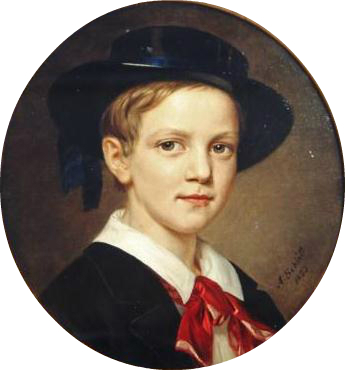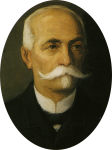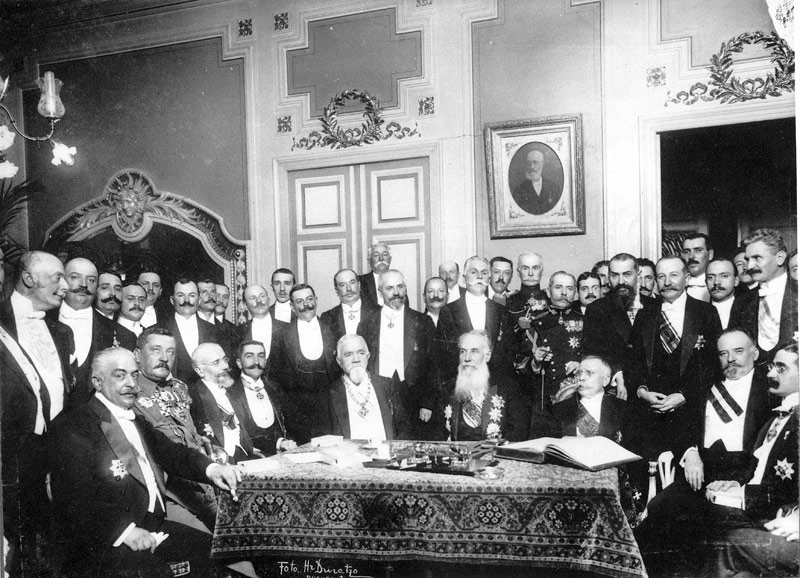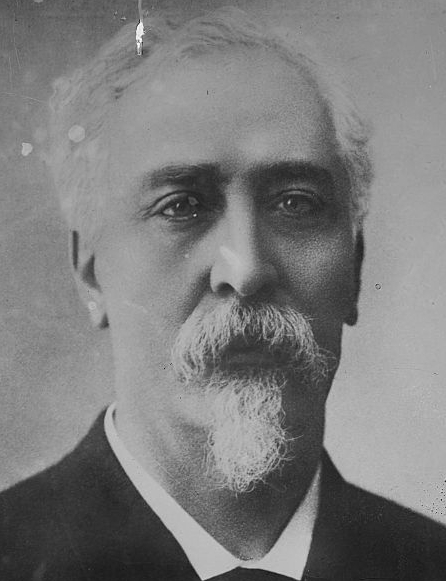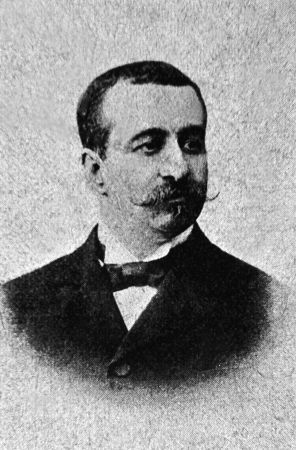|
George I Of Greece
George I ( Greek: Γεώργιος Α΄, ''Geórgios I''; 24 December 1845 – 18 March 1913) was King of Greece from 30 March 1863 until his assassination in 1913. Originally a Danish prince, he was born in Copenhagen, and seemed destined for a career in the Royal Danish Navy. He was only 17 years old when he was elected king by the Greek National Assembly, which had deposed the unpopular Otto. His nomination was both suggested and supported by the Great Powers: the United Kingdom of Great Britain and Ireland, the Second French Empire and the Russian Empire. He married Grand Duchess Olga Constantinovna of Russia in 1867, and became the first monarch of a new Greek dynasty. Two of his sisters, Alexandra and Dagmar, married into the British and Russian royal families. Edward VII of the United Kingdom and Alexander III of Russia were his brothers-in-law, and George V of the United Kingdom, Christian X of Denmark, Haakon VII of Norway, and Nicholas II of Russia were his nephew ... [...More Info...] [...Related Items...] OR: [Wikipedia] [Google] [Baidu] |
King Of The Hellenes
The Kingdom of Greece was ruled by the House of Wittelsbach between 1832 and 1862 and by the House of Glücksburg from 1863 to 1924, temporarily abolished during the Second Hellenic Republic, and from 1935 to 1973, when it was once more abolished and replaced by the Third Hellenic Republic. Only the first king, Otto, was actually styled ''King of Greece'' (). His successor, George I, was styled ''King of the Hellenes'' (), as were all other modern Greek monarchs. A republic was briefly established from 1924 to 1935. The restored monarchy was abolished weeks before the referendum in 1973 conducted under the auspices of the then-ruling military regime, which confirmed the abolishment. It was re-confirmed by a second referendum in 1974, after the restoration of democratic rule. House of Wittelsbach The London Conference of 1832 was an international conference convened to establish a stable government in Greece. Negotiations between the three Great Powers (United Kingdom, F ... [...More Info...] [...Related Items...] OR: [Wikipedia] [Google] [Baidu] |
Sotirios Sotiropoulos
Sotirios Sotiropoulos ( el, Σωτήριος Σωτηρόπουλος; Nafplio, 1831 – Athens, 1898) was a Greek economist and politician who briefly served as Prime Minister of Greece. Biography Sotiropoulos was born in Nafplio in 1831. He went to Athens to study law at the University of Athens, but was forced to interrupt his studies due to illness. Instead he turned to his other passion, Economics. In 1853 he was accepted as a tax inspector in the Ministry of Finances, and served in this capacity in various provincial towns. His rise was quick: by 1856 he was department head and soon after general secretary of the Customs Department. From this position he reformed the Customs service and wrote a new set of regulations for it, and suggested other reforms such as the abolition of the tithe. For his services, King Otto awarded him the Silver Cross of the Order of the Redeemer. Following the ousting of Otto in 1862, Sotiropoulos entered politics, and was elected as a representa ... [...More Info...] [...Related Items...] OR: [Wikipedia] [Google] [Baidu] |
Treaty Of Bucharest (1913)
The Treaty of Bucharest ( ro, Tratatul de la București; sr, Букурештански мир; bg, Букурещки договор; gr, Συνθήκη του Βουκουρεστίου) was concluded on 10 August 1913, by the delegates of Bulgaria, Romania, Serbia, Montenegro and Greece. The Treaty was concluded in the aftermath of the Second Balkan War and amended the previous Treaty of London, which ended the First Balkan War. About one month later, the Bulgarians signed a separate border treaty (the Treaty of Constantinople) with the Ottomans, who had regained some territory west of the Enos-Midia Line during the second war. Background Bulgaria, dissatisfied with its gains in the First Balkan War, and especially with Greek and Serbian gains in Macedonia, launched an attack on its former allies in June 1913. The attacks were driven back, and the Greek and Serbian armies invaded Bulgarian-held territory in return. At the same time, the Ottomans advanced into Eastern ... [...More Info...] [...Related Items...] OR: [Wikipedia] [Google] [Baidu] |
Kingdom Of Greece
The Kingdom of Greece ( grc, label= Greek, Βασίλειον τῆς Ἑλλάδος ) was established in 1832 and was the successor state to the First Hellenic Republic. It was internationally recognised by the Treaty of Constantinople, where Greece also secured its full independence from the Ottoman Empire after nearly four centuries. The Kingdom of Greece was dissolved in 1924 and the Second Hellenic Republic was established following Greece's defeat by Turkey in the Asia Minor Campaign. A military ''coup d'état'' restored the monarchy in 1935 and Greece became a Kingdom again until 1973. The Kingdom was finally dissolved in the aftermath of a seven-year military dictatorship (1967–1974) and the Third Hellenic Republic was established following a referendum held in 1974. Background The Greek-speaking Eastern Roman Empire, also known as Byzantine Empire, which ruled most of the Eastern Mediterranean region for over 1100 years, had been fatally weakened since the sa ... [...More Info...] [...Related Items...] OR: [Wikipedia] [Google] [Baidu] |
Ottoman Empire
The Ottoman Empire, * ; is an archaic version. The definite article forms and were synonymous * and el, Оθωμανική Αυτοκρατορία, Othōmanikē Avtokratoria, label=none * info page on book at Martin Luther University) // CITED: p. 36 (PDF p. 38/338) also known as the Turkish Empire, was an empire that controlled much of Southeast Europe, Western Asia, and Northern Africa between the 14th and early 20th centuries. It was founded at the end of the 13th century in northwestern Anatolia in the town of Söğüt (modern-day Bilecik Province) by the Turkoman tribal leader Osman I. After 1354, the Ottomans crossed into Europe and, with the conquest of the Balkans, the Ottoman beylik was transformed into a transcontinental empire. The Ottomans ended the Byzantine Empire with the conquest of Constantinople in 1453 by Mehmed the Conqueror. Under the reign of Suleiman the Magnificent, the Ottoman Empire marked the peak of its power and prosperity, as well a ... [...More Info...] [...Related Items...] OR: [Wikipedia] [Google] [Baidu] |
Thessaloniki
Thessaloniki (; el, Θεσσαλονίκη, , also known as Thessalonica (), Saloniki, or Salonica (), is the second-largest city in Greece, with over one million inhabitants in its metropolitan area, and the capital of the geographic region of Macedonia, the administrative region of Central Macedonia and the Decentralized Administration of Macedonia and Thrace. It is also known in Greek as (), literally "the co-capital", a reference to its historical status as the () or "co-reigning" city of the Byzantine Empire alongside Constantinople. Thessaloniki is located on the Thermaic Gulf, at the northwest corner of the Aegean Sea. It is bounded on the west by the delta of the Axios. The municipality of Thessaloniki, the historical center, had a population of 317,778 in 2021, while the Thessaloniki metropolitan area had 1,091,424 inhabitants in 2021. It is Greece's second major economic, industrial, commercial and political centre, and a major transportation hub for Greece and s ... [...More Info...] [...Related Items...] OR: [Wikipedia] [Google] [Baidu] |
Copenhagen
Copenhagen ( or .; da, København ) is the capital and most populous city of Denmark, with a proper population of around 815.000 in the last quarter of 2022; and some 1.370,000 in the urban area; and the wider Copenhagen metropolitan area has 2,057,142 people. Copenhagen is on the islands of Zealand and Amager, separated from Malmö, Sweden, by the Øresund strait. The Øresund Bridge connects the two cities by rail and road. Originally a Viking fishing village established in the 10th century in the vicinity of what is now Gammel Strand, Copenhagen became the capital of Denmark in the early 15th century. Beginning in the 17th century, it consolidated its position as a regional centre of power with its institutions, defences, and armed forces. During the Renaissance the city served as the de facto capital of the Kalmar Union, being the seat of monarchy, governing the majority of the present day Nordic region in a personal union with Sweden and Norway ruled by th ... [...More Info...] [...Related Items...] OR: [Wikipedia] [Google] [Baidu] |
Constantine I Of Greece
Constantine I ( el, Κωνσταντίνος Αʹ, ''Konstantínos I''; – 11 January 1923) was King of Greece from 18 March 1913 to 11 June 1917 and from 19 December 1920 to 27 September 1922. He was commander-in-chief of the Hellenic Army during the unsuccessful Greco-Turkish War of 1897 and led the Greek forces during the successful Balkan Wars of 1912–1913, in which Greece expanded to include Thessaloniki, doubling in area and population. He succeeded to the throne of Greece on 18 March 1913, following his father's assassination. Constantine’s disagreement with Eleftherios Venizelos over whether Greece should enter World War I led to the National Schism. He forced Venizelos to resign twice, but in 1917 he left Greece, after threats by the Entente forces to bombard Athens; his second son, Alexander, became king. After Alexander's death, Venizelos' defeat in the 1920 legislative elections, and a plebiscite in favor of his return, Constantine was reinstated. He abdi ... [...More Info...] [...Related Items...] OR: [Wikipedia] [Google] [Baidu] |
Eleftherios Venizelos
Eleftherios Kyriakou Venizelos ( el, Ελευθέριος Κυριάκου Βενιζέλος, translit=Elefthérios Kyriákou Venizélos, ; – 18 March 1936) was a Greek statesman and a prominent leader of the Greek national liberation movement. He is noted for his contribution to the expansion of Greece and promotion of liberal-democratic policies.Kitromilides, 2006, p. 178"Liberty Still Rules" '' Time'', 18 February 1924. As leader of the , he held office as |
Stephanos Dragoumis
Stefanos Dragoumis ( el, Στέφανος Δραγούμης; 1842September 17, 1923) was a judge, writer and the Prime Minister of Greece from January to October 1910. He was the father of Ion Dragoumis. Early years Dragoumis was born in Athens. His grandfather, Markos Dragoumis (1770–1854), who was born in a prominent Greek family from Vogatsiko in the present Kastoria regional unit, had been a member of the 1814–1821 revolutionary Filiki Eteria, while his father Nikolaos Dragoumis was secretary of Ioannis Kapodistrias. Born in Athens in 1842, Dragoumis studied law at the University of Paris and became a judge. Political career He became Secretary-General of the Ministry of Justice and was very active politically. He was later elected a member of Parliament and served as Minister of Foreign Affairs, Minister of Justice and Minister of the Interior. He was also active in the Macedonian Struggle. The organization ''Macedonian Committee'' was formed in 1904 by Stephanos D ... [...More Info...] [...Related Items...] OR: [Wikipedia] [Google] [Baidu] |
Kyriakoulis Mavromichalis
Kyriakoulis Petrou Mavromichalis (, 1850–1916) was a Greek politician of the late 19th and early 20th centuries who briefly served as the 30th Prime Minister of Greece. Mavromichalis was born in Athens in 1850 into the renowned Mavromichalis family of Mani, which had fought during the Greek War of Independence. He was first elected to the Hellenic Parliament in 1879 and served as: Interior Minister (1895–1897, 1902–1903 and 1905) and Minister for Military Affairs (1904–1905), before becoming Prime Minister of Greece following the Goudi Revolt by the Military League and the fall of the Dimitrios Rallis government in 1909. Under pressure from the League, Mavromichalis passed a large amount of ground-breaking legislation that the League demanded, including organization of the army, the justice and educational systems, and governmental organization. Mavromichalis resigned as Prime Minister in January 1910, after a disagreement with the Military League. He died in Athen ... [...More Info...] [...Related Items...] OR: [Wikipedia] [Google] [Baidu] |
Georgios Theotokis
Georgios Theotokis ( el, Γεώργιος Θεοτόκης, 1844 in Corfu – 12 January 1916 in Athens) was a Greek politician and Prime Minister of Greece, serving the post four times. He represented the Modernist Party or ''Neoteristikon Komma'' (NK). Biography He was the third child of Corfiote Nikolaos Andreas Theotokis. After graduating from the Ionian high school, he enrolled at the Law School of the Ionian University. In 1861 he received his law degree from the Ionian University with a scholarship and continued his studies at the Sorbonne in Paris. Upon his return to Corfu he worked as a lawyer. In 1879 he took part in the municipal elections and was elected mayor with a percentage of 65%. In 1883 he was re-elected mayor only to leave in 1885 at the invitation of Charilaos Trikoupis, to become a member of the Hellenic Parliament for the Trikoupis party. In May 1886 Trikoupis appointed him Minister for Naval Affairs. As a minister Theotokis ordered the battleships ... [...More Info...] [...Related Items...] OR: [Wikipedia] [Google] [Baidu] |
